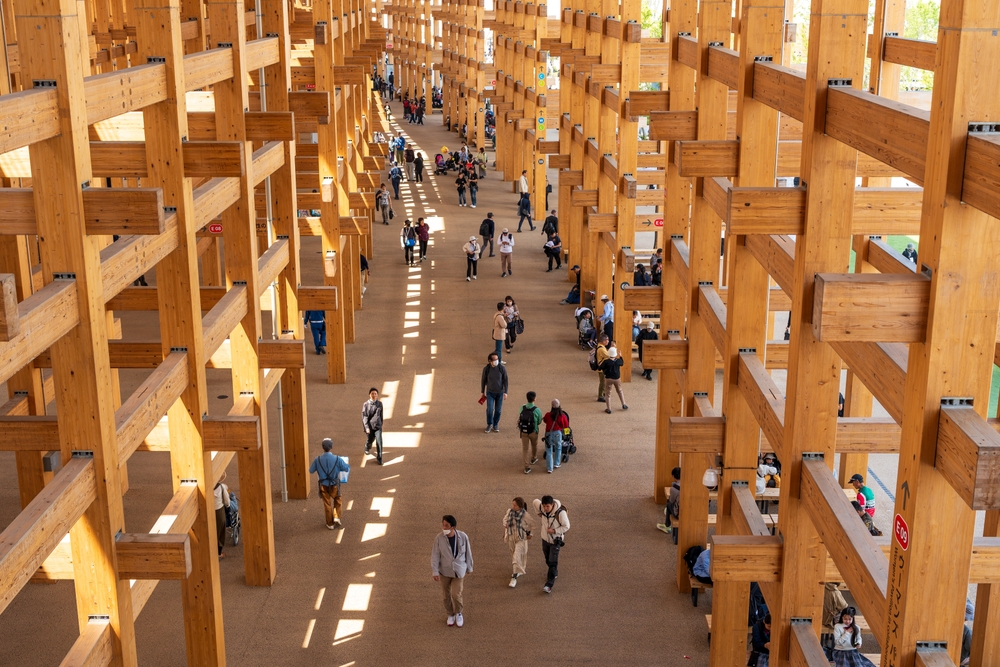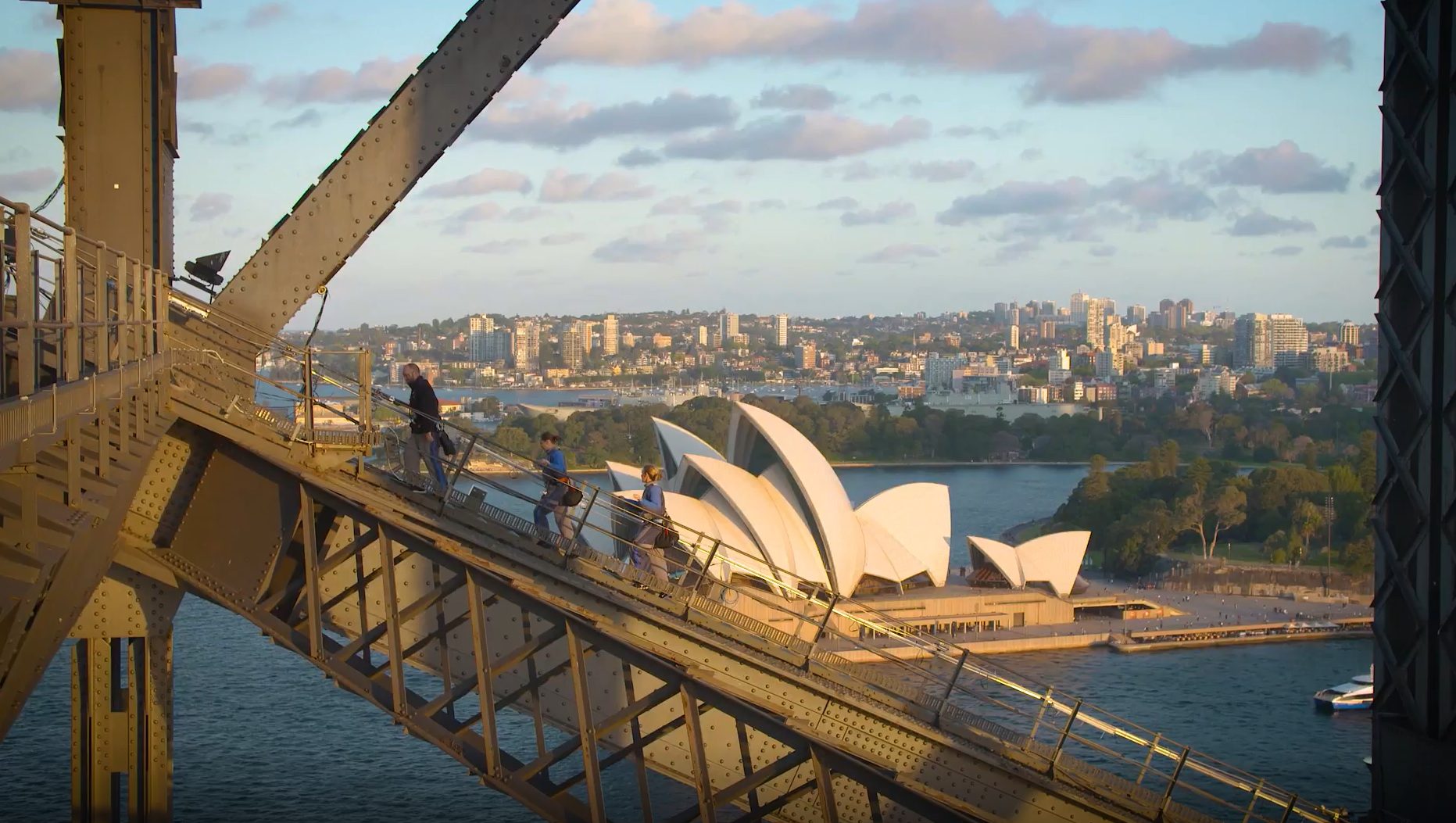THE EAST
When it comes to meetings and events, is China just a tale of two cities? It can sometimes seem that way. Beijing and Shanghai have China’s best-developed business events industries. Together, they account for the lion’s share of the meetings and events held in the country. Beijing alone hosts more than 220,000 meetings and conferences every year, generating RMB13.18 billion (US$2.08 billion) in revenue, according to recent China National Tourism Administration figures.
“It is expected that by 2020, the scale of the meetings industry market will be four or five times as large as it is today,” says Jeffrey Xu, Reed Travel Exhibitions project manager, China Incentive, Business and Meetings (CIBTM).
The 2008 Beijing Summer Olympics and the Shanghai World Expo in 2010 left the two cities with more than increased brand recognition internationally. They also left behind many more hotels, many new or refurbished venues, and a vastly enhanced infrastructure.
Beijing blossoms
“There is a lot more capacity in Beijing and Shanghai since these events,” says Ken Wang, assistant director of events at the Fairmont Beijing. “Four years after the Olympics, we’re certainly seeing continued growth in demand and increased bookings in our event spaces.”
While the hotel is not equipped to cater events off-site, it has partnered with the Special Commune, an organisation that helps intellectually challenged young people with job training and job opportunities. Several graduates of the scheme are now employed at the hotel. “MICE groups can visit the organisation’s organic farm and help out with projects around the farm, including planting and harvesting,” Wang says. “Their farm is also located close to the Great Wall, so a great day can be spent at the farm followed by a visit to the Great Wall. Fairmont Beijing can cater picnic boxes so that participants can enjoy lunch on the wall.”
The hotel has also partnered with the Beijing Cultural Heritage Protection Center (BCHP), which can offer corporate groups an active and historical experience. “We have a fleet of bicycles that groups can use to explore the ancient hutong alleys around Beijing,” Wang says. “This can be done with a guide from BCHP or using an iPhone map and tour guide that was created by the hotel.”
According to Alicia Yao Hong, vice-chairman, CITS International M.I.C.E., five-star hotels are still the most popular place for general meetings and banquets because they offer good food and service. “For international association conferences, the hottest venue is the China National Convention Center (CNCC), which has large meeting spaces and exhibition halls,” Yao says. “It also has the InterContinental Hotel and CNCC Hotel linked together with the CNCC and the Pangu Seven Star Hotel and Crowne Plaza Hotel nearby.”
But the city – with its multilayered history – does offer more creative venues for event organisers with imagination. According to Richard Rheindorf, managing director of MCI China’s Beijing office, currently the hottest off-site locations are the Great Hall of People, the Forbidden City, the National Museum and the Great Wall.
Then there is 798 Space (www.798space.com), a collection of Bauhaus-style factories that have been turned into a beehive of high-profile artistic, cultural and commercial activities. The venue has proved especially popular with fashion houses, who often stage fashion shows there. It is also frequently used for meetings, press conferences and cocktail parties.
Shanghai Comes of Age
One of the things that has set Shanghai apart from other Chinese cities is the large number of Western-style heritage buildings that dot the city. Many of these buildings have been renovated for new uses in recent years, and they offer spectacular venues for meetings and events. The Waldorf Astoria Shanghai (www.waldorfastoriashanghai.com) on the Bund is a classic example of this modern take on the city’s exciting early 20th century history, with its re-creation of the Bund’s famous Shanghai Club Long Bar and opulent ballrooms for special events. Nearby, the Shanghai Peace Hotel (www.fairmont.com/peacehotel) offers glamorous art-deco spaces and a rich heritage.
The neighbouring Swatch Art Peace Hotel (www.swatch-art-peace-hotel.com), with its galleries and innovative artists-in-residence programme, is another stylish location. In addition to its food and beverage outlets, a multipurpose room, an exhibition room and galleries, the hotel has a rooftop terrace – one of many rooftop venues that have been launched along the elegant stone edifices overlooking the Huangpu River in recent years. These venues have been proving popular with event organisers because of the spectacular views they afford.
A former slaughterhouse built in 1933 in the city’s historic Hong Kou district, 1933 Shanghai (www.1933shanghai.com) is another heritage site drawing the attention of events organisers. While the art-deco exterior has been restored to its former grandeur, the roof and four-storey interior have been converted into a series of concrete-and-glass spaces with interlocking ramps and bridges, along which cattle were formerly herded. With design studios, luxury boutiques, art galleries and F&B outlets, it serves as a spectacular venue for high-profile events such as art exhibitions, theatre performances, fashion shows and product launches.
Open to the public only one day a month, Haven (www.havenshanghai.com) is available the rest of the time for private functions. The vampire-themed venue has a large main room with a church-like vaulted ceiling. Haven can be used for fashion shows, formal banquets, press conferences and weddings. Adding to the prestige for organisers is the fact that Haven plans to stop operations after holding 666 events.
Second-tier Cities in the East
Other cities along the country’s Eastern flank – particularly Hangzhou, Qingdao and Tianjin – are also starting to attract the attention of event organisers. While not well known overseas, all three cities are popular with domestic travellers.
As a sign of things to come, a newly opened hotel in Qingdao has the largest pillarless ballroom in Mainland China, a massive new polo complex has been built near Tianjin, and Banyan Tree has launched a breathtakingly beautiful boutique hotel in Hangzhou. “Eastern China has very favourable natural conditions and is rich in natural resources,” says Michel Molliet, vice-president of Sofitel Greater China. “It has a wide range of industries and is China’s most highly developed region in terms of economy, transportation and many other areas.”
And while Molliet adds that “cities like Beijing and Shanghai have full infrastructure in place to support events of any size,” the central government’s drive to increase infrastructure at pace in all its second-tier cities bodes well for a broadening of choice in the events destination market.
THE WEST
When Western China makes the international news, it is usually for all the wrong reasons – especially in the country’s Far West. With occasional lockdowns, a slow-moving bureaucracy and a lack of infrastructure, it’s no wonder that event organisers have largely given the region a miss.
In addition, there are issues such as distance, no track record and a lack of English speakers. And yet. Western China is one of the country’s most colourful and interesting regions; it is home to many of China’s 55 ethnic minorities, while provinces such as Yunnan, Shaanxi and Sichuan have rich and diverse cultures, impressive arrays of heritage sites, breathtaking scenery and delicious cuisines. From the monasteries of Tibet to the terracotta warriors of Xian and the panda reserves of Sichuan, the region is full of opportunities for sightseeing and team-building excursions to enrich events programmes.
But staging an event in Western China is not for the faint-hearted. Event organisers should expect the unexpected, while leaving nothing to chance. However, for those with a sense of adventure – and an eye for detail – the ultimate rewards just might be worth all the effort.
Focal points
When Shanghai-based HLD Events was asked by a regular client to organise the launch of an automobile showroom in Xian, capital of Shaanxi province and home of the world-renowned terracotta warriors, it had “a few concerns regarding catering options and the quality of production,” says Stefano Ritella, director of HLD Events.
“For catering, we were going to rely on five-star hotels since no caterer of decent level operated in the city,” Ritella says. “Finally, we [decided to] work with a catering company from Beijing. The quality of production was – as is very often the case in China – a point of attention, and we had to put extra control on it since the local workers were not skilled and didn’t have an eye for detail.”
According to Xu of CIBTM, Chengdu and Chongqing, both in Sichuan, and Kunming in Yunnan, are the cities in Western China with the most potential for business events over the next 10 years. But he warns that they still have a way to go before they are ready to welcome the world.
“Unlike the developed cities such as Beijing and Shanghai, the basic infrastructure in these three cities still cannot meet the standards for meetings and events, especially association congresses,” Xu says. To ensure a successful event, Xu advises calling upon the services of a local counterpart and having locally based staff on hand to work closely with you.
“China is a relationship society, and the networks of relationships that are built up by your local service providers are key. It is important to take the time to establish relationships with these people before you start to get involved in dealing with the pressures associated with detailed logistics,” Xu advises.
Xian Hotel Gets Top Marks
There are a few bright spots on the horizon. The Sofitel Xian on Renmin Square in the ancient capital city of Xian, for example, was recognised two years ago as one of the country's top 10 MICE hotels in the China Starlight Awards Committee, composed of members of the media, banking and hotel industry. When you couple state-of-the-art convention facilities with sightseeing excursions to the terracotta warrriors, team-building activities on a reconstructed section of the old city wall, you have a winning combination.
Jessica Chuang, senior marketing manager, Hotels.com, Greater China, is also placing her bets on Chengdu and Chongqing. Home to one of China’s most popular cooking styles – as well as a massive panda reserve and key heritage sites – Sichuan is well placed to develop into a key destination for meetings and events. Event attendees can take cruises on the upper reaches of the Yangtze River or take excursions to the Dazu Grotto, Emei Mountain or Jiuzhaigou Valley. Aware of their great potential, both cities are developing the infrastructure needed to attract conventions, meetings and events. And their efforts are already starting to bear fruit.
“Chengdu has hosted several international conferences in recent years, including the Western China International Fair and the Medical Device Technology Exhibition,” Chuang says. “It has built two important venues: the Chengdu International Exhibition and Convention Center and the New International Convention and Exhibition Centre Chengdu Century City.”
The biggest conference centre in Western China, meanwhile, is currently under construction in Chongqing. “It is expected to open by the end of 2012,” Chuang says. “As a strategic second-tier city, it has attracted many international companies to open their offices there. As a result, numerous meetings are expected to be held in the city – especially from the electronics and agricultural sectors. There is certainly an enormous market for MICE business.”
HOTEL HIGHLIGHTS
From Beijing to Shanghai to Mainland China’s other big cities, there are many top-quality hotels to choose from
THE EAST
Fairmont Beijing
Located in Chaoyang District, Beijing’s financial heart, this 222-room hotel is surrounded by Fortune 500 companies. It has three meeting rooms, including a function room holding up to 100 guests and a multipurpose theatre accommodating 200 people, as well as two restaurants and three bars.
Waldorf Astoria Shanghai on the Bund
With dark-wood panelling and dripping with crystal chandeliers, this heritage property’s Waldorf Astoria Club could just be the most elegant space in China. There are two smaller ballrooms and a further six boardrooms in the new wing, as well as the legendary Long Bar and five other F&B outlets.
www.waldorfastoriashanghai.com
Banyan Tree Hangzhou
This 72-unit property offers a rare opportunity to host corporate events, theme parties and wedding banquets within traditional Chinese-style villas. Xixi Wetland tours by boat can be arranged.
www.banyantree.com/en/hangzhou
The Westin Tianjin
With a dedicated floor housing seven meeting and events spaces, this 275-room hotel can handle everything from intimate functions to as many as 600 guests in the Grand Ballroom. There is an outdoor terrace for open-air events as well as seven F&B outlets.
Kempinski Hotel Qingdao
With the largest pillarless ballroom in Mainland China, this newly opened property can handle everything from a small board meeting to a wedding banquet for as many as 3,000 guests. Located 30 minutes from downtown Qingdao, it has 28 meeting rooms ranging from 65 sqm to 3,600 sqm as well as five F&B outlets.
THE WEST
Sofitel Wanda Chengdu
Overlooking the Funan River and a 15-minute walk from the CBD, this 262-room hotel has a 400-seat ballroom, an auditorium with a multilingual translation system, five other function rooms, three restaurants and four bars.
The St Regis Lhasa Resort
This 162-room hotel has a total of 549 sqm of meeting space, including a grand ballroom and three other meeting venues, as well as three full-service restaurants, a tea room and a wine bar.
www.starwoodhotels.com/stregis
Sheraton Urumqi Hotel
Situated in Urumqi’s upscale shopping district beside a 204,000 sqm retail and entertainment complex, this 398-room hotel has more than 1,400 sqm of meeting space, including a grand ballroom, three function rooms and two boardrooms, as well as four restaurants, a café and a lobby lounge.
www.starwoodhotels.com/sheraton
Sofitel Xian on Renmin Square, Xian
This 414-room property is located at Renmin (People’s) Square in downtown Xian. It has meeting and banquet facilities including a convention centre, the largest pillarless ballroom in the city, 12 function rooms, a 1,500-seat grand theatre and seven F&B outlets.
www.renminsquare.com.cn/en/sofitel
Grand Park Kunming
Overlooking Green Lake Park, this is the city’s first international luxury hotel. There are 300 guestrooms, 1,500 sqm of meeting space including two grand ballrooms and six function rooms that can host up to 380 people, as well as three eateries including the city’s only revolving restaurant.
www.parkhotelgroup.com/kunming
ITINERARY
XIAN
HLD Events was asked by a regular client to plan a launch party for the opening of an auto showroom in Xian on November 22 and 23, 2011. After checking out the locally available catering options, it decided to fly in caterers from Beijing in order to ensure quality.
Day 1
- 8:30am Arrival at the venue
- 9:30am All on stand-by
- 10–10:10am Guest Registration and reception cocktail
- 10:10–10:30am Opening speeches and official ribbon cutting ceremony
- 10:30–10:40am Hanno Speech
- 10:40–11am Tea break
- 11am–12pm Team 1: Company trend introduction; Team 2: DMC 80 FD roadshow-company presentation section
- 12–1pm Buffet lunch and free discussion
- 1–2pm Team 1: Industry solutions; Team 2: DMC 80 FD roadshow-company presentation section
- 2–5:45pm DMC 80 FD demonstration via a plasma screen and a live metal cutting demonstration at the showroom
- 6:30–8:30pm Dinner
Day 2
- 8:30am Arrival at the venue
- 9:30am All on stand-by
- 10–10:50am Welcome, company trend introduction
- 10:50–11am Tea break
- 11am–12pm Team 1: Industry solutions; Team 2: DMC 80 FD roadshow-company presentation section
- 12–1pm Buffet Lunch and free discussion
- 1–2pm Team 1: Industry solutions; Team 2: DMC 80 FD roadshow-company presentation section
- 2–5:45pm DMC 80 FD demonstration via a plasma screen and a live metal cutting demonstration at the showroom
- 6:30–8:30pm Dinner
THE PROFESSIONALS
CITS INTERNATIONAL M.I.C.E CO, LTD
email: yaohong@cits.com.cn
MCI CHINA
email: richard.rheindorf@mci-group.com
BEIJING XINHUA INTERNATIONAL TOURS (CHINA)
email: manager@tour-beijing.com
HLD EVENTS
email: sritella@hldevents.com
CHINA INCENTIVE, BUSINESS AND
MEETINGS TRAVEL EXHIBITION (CIBTM)
email: jeffrey.xu@reedexpo.com.cn
FAST FACTS
Access: There are international airports in first-tier cities such Beijing and Shanghai with direct links to most parts of the world. Second- and third-tier cities such as Chengdu, Chongqing, Hangzhou, Kunming, Lhasa, Qingdao, Tianjin and Urumqi all have airports, but direct flights are usually limited to domestic destinations, Hong Kong and neighbouring countries.
Climate: Summers can range from 30?C to 40?C, while winters can range from 6?C to -30?C.
Visa: Foreign visitors should apply for visas through a Chinese embassy or consulate before departure. Chinese visas can also be arranged through many travel agencies in Hong Kong.
Language: Mandarin is universally spoken, but English standards vary greatly. Contact: China International Travel Service
Website: www.cits.net


